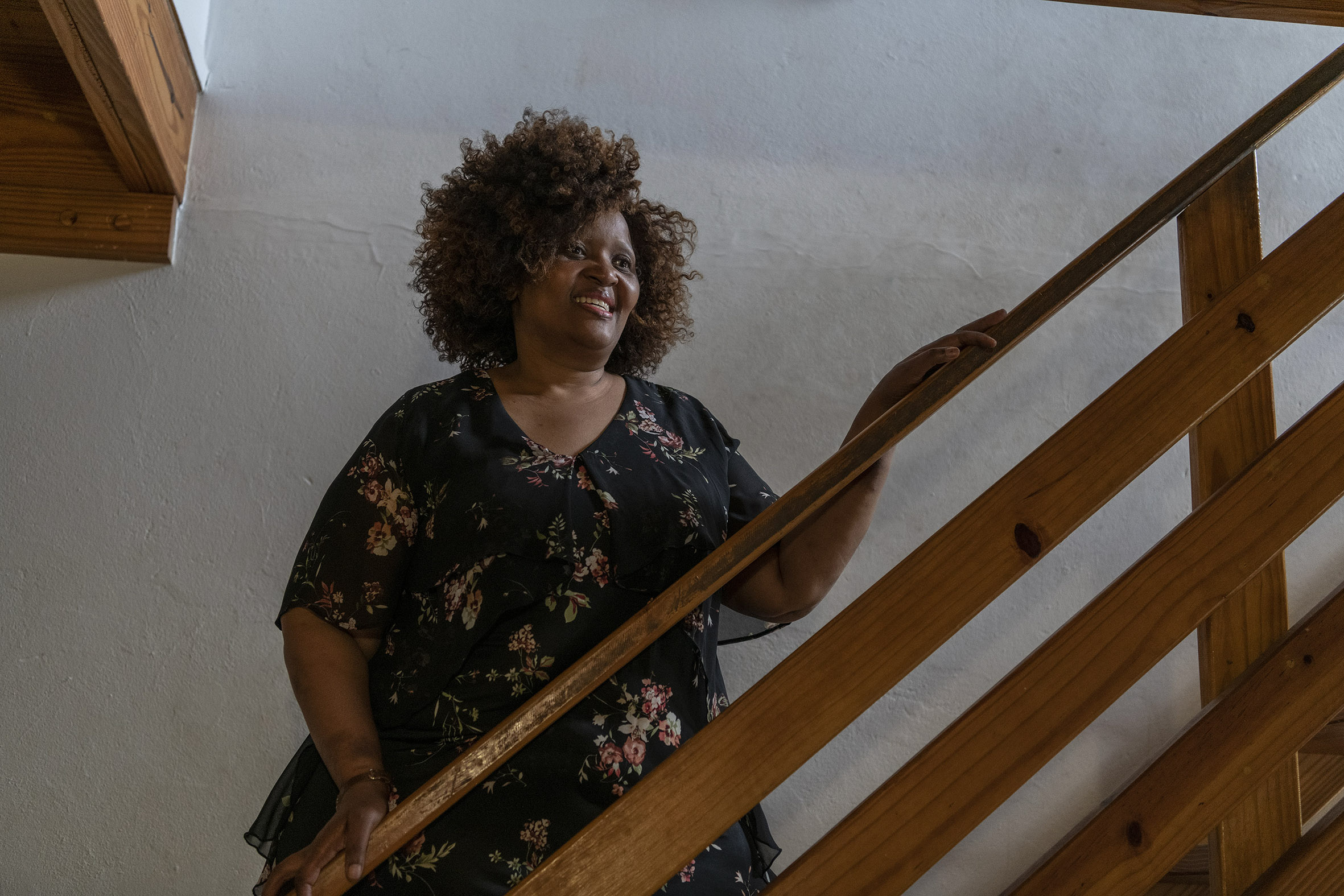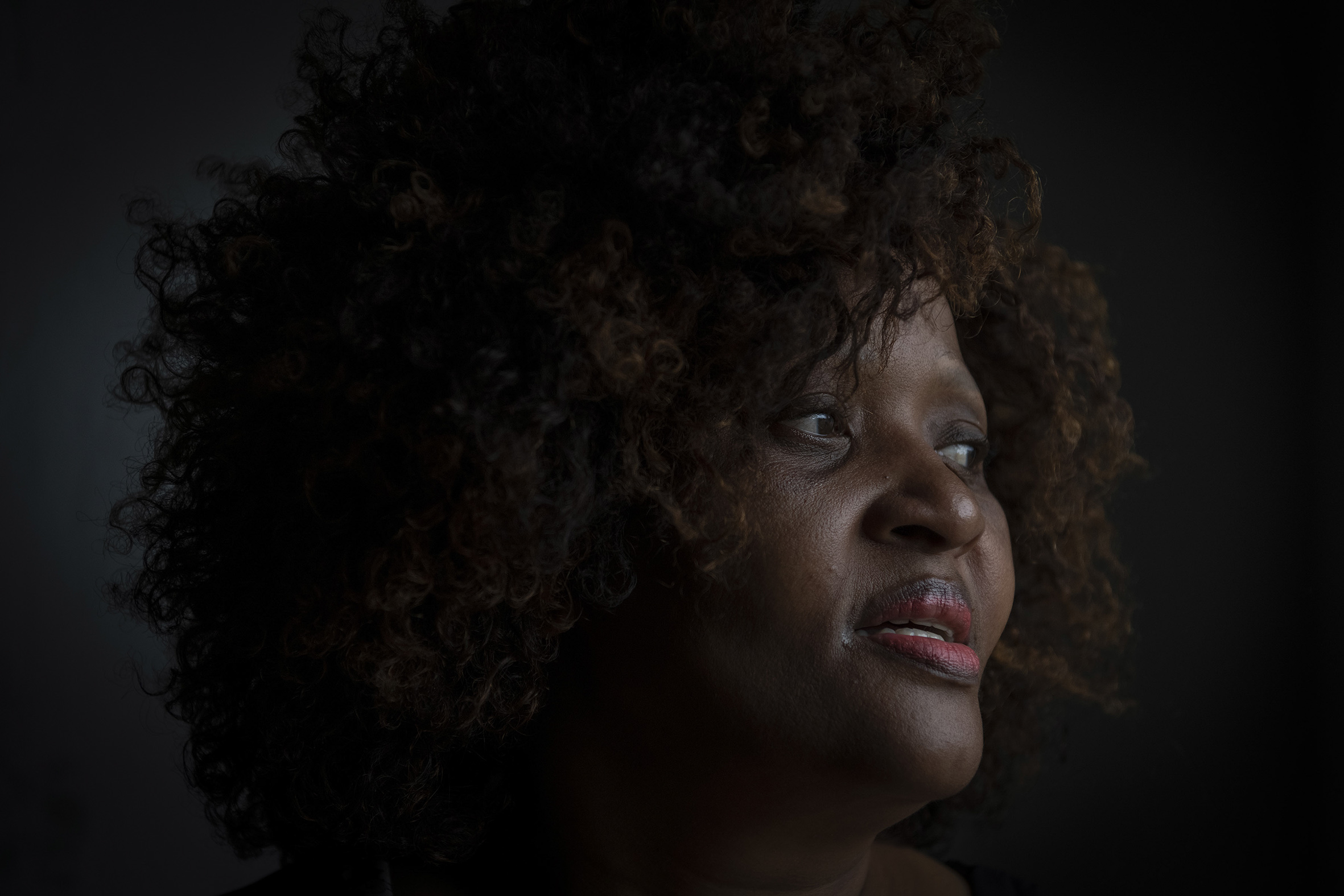Phelisa Nkomo stakes a claim for rural women
In the third of a four-part series on grassroots activism against gender-based violence we meet an economist with a firm focus on developing opportunities for those the government ignores.
Author:
12 January 2022

Development economist, feminist and social justice activist Phelisa Nkomo is a strong critic of austerity, arguing that it is a form of violence, especially against women, who bear most of its brunt. “Women are not afforded the same economic opportunities as men to begin with. With budget cuts, any services that are meant to support women are reduced,” she says.
“It is economic violence that women often work in jobs where they never gain any benefits. It is economic violence that women have to spend most of their days queuing at maintenance courts and the men just never pitch, or where they pitch they claim not to have income or under-declare the type of income that they have to support their children. It is economic violence that it falls to women to come up with the food for children when there is no food at home.”
Born in Cape Town and raised in Butterworth, Nkomo says she identifies as a “rural girl with a very soft spot for rural communities”. “I often observe the disjuncture between how the metropolitan areas are way ahead economically compared with the rural areas. There is an extractive relationship between capital cities and rural areas. For rural citizens to have a stake in the economy, they need to pack their bags and move to urban areas to sell their labour.”
Part one:
Coming from a strongly matriarchal family in which she was the second of eight children being raised by their mother and grandmother, Nkomo says there was simply no money at home and she had to start working as soon as she finished high school. She worked in unions as well as social justice organisations such as the Open Society Foundation, the Black Sash and the African Gender Institute before moving to a management job in Parliament. She left for the Department of Public Enterprises, where she spent nine years as an economic adviser.
Nkomo’s background and work history mean she has experienced the different sides of the political, economic and urban-rural divides over the past 25 years, which is why she is against austerity. She takes her work as a development economist seriously, and has been reprimanded for it. While working in the ANC’s communications team ahead of the 2019 general election, she was banned by Enoch Godongwana, then the ANC’s economic policy head and now finance minister, from talking about economics after she called on the Reserve Bank’s monetary policy committee to “prioritise the plight of poor South Africans”. This pro-poor statement was immediately slammed by the business press as being indicative of the ANC wishing to interfere with the independence of the bank.
Nkomo then started working as a consultant focusing on economic research and public speaking. She is a sought-after public speaker and recently became the technical adviser for a team of women who are setting up a fund to combat gender-based violence.
Women as second-class citizens
To Nkomo, gender-based violence goes beyond men beating and killing women: its tentacles stretch across class, age and occupation and it affects huge numbers of women. “This violence is not always explicit, but it can be found where a system is designed around masculinity and women have no voice. Women have always been classified politically and socially as second-class citizens, and sexually objectified. Sex for jobs… in the Eastern Cape it’s a huge issue, in Limpopo and the Free State too at local government level, when women are looking for opportunities,” says Nkomo.
She points out that working-class women who support their families by selling vegetables in the informal sector, for instance, are constantly subjected to gender-based harassment by the police and “men who have assumed the responsibility of being local chiefs”. “They have to pay with sex to get a stall or they can only get a bigger stall if they ‘do something special’ for someone,” Nkomo says. This practice, she adds, has trickled down into schools where there are increasing numbers of male teachers asking female pupils for sex in exchange for good grades.

Nkomo says she is “disgusted by the silence of the South African authorities and citizens” over the recent revelation that 18 000 Gauteng and 27 000 KwaZulu-Natal girls, all aged between 10 and 14 years, got pregnant since the start of the pandemic. “This indicates that children in South Africa live with rapists, but sadly the South African media describes it as teenage pregnancy,” she says.
She distinguishes clearly between African and liberal feminism. “Sometimes white feminism and its limitations actually compel Black women to settle for less and to fight for small gains instead of looking for much more radical solutions.” She argues that race, class and spatial location should be included in the tools of analysis.
At the University of Cape Town’s African Gender Institute, Nkomo coordinated a fellowship programme aimed at creating writing spaces for African women in academia. It provided “childcare so that they could focus on their intellectual work, freeing them from the unpaid social reproductive work that African women in academia do, which could derail their career progress and publishing”.
Toxic masculinity
Nkomo also pursues her advocacy as a member of different boards. She is the chairperson of Oxfam South Africa’s board, a member of the board of the Coega Development Corporation and a trustee of the Studies in Poverty and Inequality Institute. She believes it is useful for social justice activists to sit on boards to ask uncomfortable questions about staff composition, decision-making and organisational culture and insist on steps to address gender pay gaps.
This is not always easy and she says she has experienced “orchestrated toxic masculinity” in some boards. “Throughout that I had to be resilient and remain strong and never allow such experiences to change my leadership ethos and the inner me.”
Currently, she is also the development economist for the Women Economic Assembly, a combined government, non-government and business-sector initiative that aims to bring more women into public sector procurement. Her hopes are that the initiative, which was launched in October last year, will work primarily with women-owned businesses in township and rural communities and advocate for financial support for these small enterprises.
Part two:
Just as the Covid-19 hard lockdown began in March 2020, Nkomo was among 76 economists who sent an open letter to President Cyril Ramaphosa calling on him to introduce a basic income grant, provide free childcare for essential workers and set up payment holidays from municipal taxes, rent and mortgages, and other debts. The letter also asked Ramphosa to set up emergency low-interest loans for businesses and guarantee wage payments to all workers for the duration of the lockdown.
However, a developmental economic agenda does not appear to be the government’s priority, Nkomo says. She believes there is a leadership crisis across society and different interest groups lobby only for their own agendas. “The window of opportunity to provide economic opportunities to the impoverished majority is slowly closing,” she says. The government will have to industrialise rural areas to reverse the “perpetual labour migration from Black communities” that continues destroying Africans’ family structure, as it did under apartheid, she adds.
Her recommendation for improving the economy is that the government roll out massive railroad infrastructure and food security programmes that will provide incomes for the impoverished. “Release government land parcels for food production and support communities with seeds and water,” says Nkomo. “This food security programme could be led by young people across South Africa through a campaign to use every piece of unused land for community food security.”


